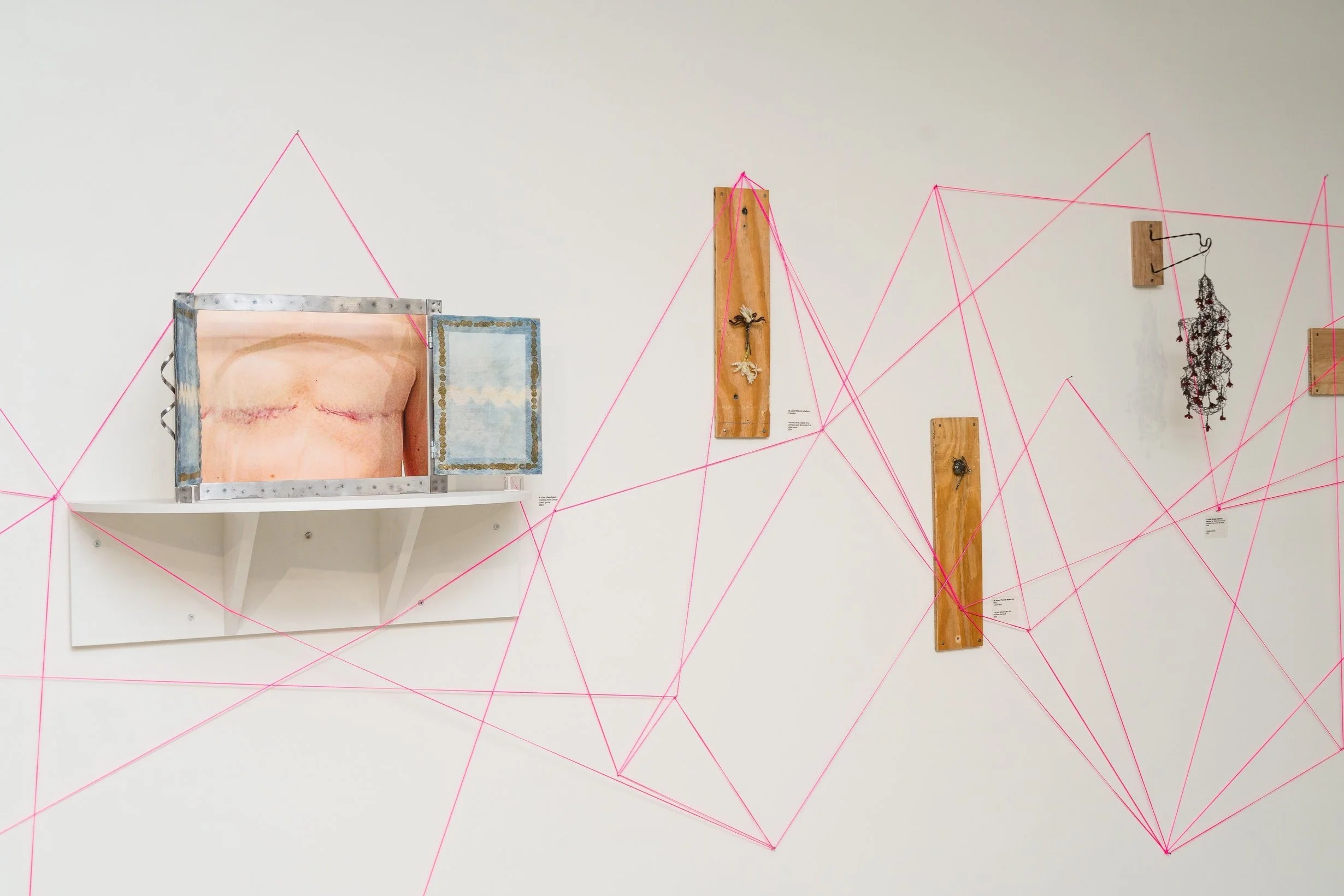
Katie McCabe is a maker of many sorts. They live in Vermont and teach at the Dartmouth College Donald Claflin Jewelry Studio, where they are exploring different enameling techniques to say more with color. Katie uses creation as conversation with her community, making mostly gifts, trades, and songs, and she is on a quest for soulmate collaborators in music, metals, tap dance, puppetry, fiber arts, and certainly some things she has yet to discover.
Katie McCabe
she/they
Norwich, VT, USA
“This work is a memorial and an altar, a way to materialize grief too big for words and hold it in my hands, turn it over, put it up to the light and see it glow. There are so many interconnected deaths to mourn, from the Palestinians murdered every single day to Sandra Massey to Nex Benedict to folks dying in my local community from the same systemic powers. Through this work I can begin to process and hold these individuals up as a collective, inviting light to honor and connect them in death, unyielding in their unified luminosity.”
How does your work relate to the theme connection?
“The deaths I am mourning are all deeply connected under our capitalist, imperialist society which must impose violence and fabricate fear to profit and maintain power, and anything that threatens that—any liberatory thinking, any demand for a better world, anyone in the way—is a target. I feel that every one of these flowers is for a sibling, of mine, of yours, of each other; our queerness connects us inextricably to Palestine and to so much else, as none of us are free.
Additionally, this work is a spiritual exploration for me. Raised excessively atheist, it’s taken me a long time to find a way into thinking deeply about life and death and ancestral relations and all things bigger than us. But in a world full of so much loss and injustice—and also so much beauty and community-coming-togetherness, even if it’s not enough—I don’t yet know what I’m praying to, but I feel I am learning to pray.
While this work was taking shape, I came to realize that I feel most connected to my ancestors when I’m doing what for them was considered ‘women’s work,’ like baking and fiber arts. My mother and grandmother passed those skills down to me, never forced by my gender, but rather because I saw the potential for intergenerational connection through craft and they saw my hunger. I am deeply grateful.
With this piece, after trying a slew of new techniques to suspend the flowers from something grounded in Palestinian keffiyeh motifs, I realized my ancestors already taught me what I needed to do: just knit it, make the fishnet pattern with wire. By weaving in my own swirling spiritual feelings about who I came from and where they’ve gone, I kept myself present to approach the task of honoring lost ones with the most serious of intentions."
"Memorial for Palestinian Lives and All Other Lives Lost to the Same Evils", Copper, enamel, 6" x 12", 2024NYCJW24 @ UrbanGlass, Francely Flores
What role does connection play in your creative process?
“I make music more than I make anything physical, and the most impactful thing a mentor ever said to me was that ‘a band is just the sound of a relationship.’ I’ve spent the years since receiving that wisdom prioritizing deep connection with others over all other forms of practice in my craft. Recently, I’ve begun to see the fruits of that labor—being able to bring a vulnerable journal entry to a guitarist friend to let them write the chords for me, beginning a sewing project at the dining room table that I don’t have the skills to complete but my roommates do, trading rings with jeweler friends that we push ourselves to make in each other’s styles. I’ve noticed some of my peers are notably more productive than me, and also notably lonely. I’ve especially noticed this loneliness in men and cishet makers, and I ponder the privilege I hold by being in communities that inherently understand and talk about how we must work with and lean on each other to survive. Queerness has taught me radical kinship; what could be more grounding and inspiring to make art than that?"
NYCJW24 @ UrbanGlass, Simon Leung
What connection(s) does your queerness make to the world around you?
"I’ve been thinking a lot this year about kink positivity, which feels inherent in many queer spaces since it flows naturally from accepting all bodies/rejecting colonial gender norms. I understand: I may not relate in the slightest to the way that person wants to experience pleasure, but as long as it’s consensual, I love that for them. Then I had a simple revelation that really rocked my world—if humans can be this insanely diverse and different from me in the weird tiny part of them that is responsible for kinks and they still deserve my love, there must be a million other ways we can be deeply unalike that I should approach with just the same radical acceptance. Queerness, particularly queer pleasure, has cemented for me that we’re all just creatures with crazy cocktails of genes and hormones and traumas and systems, and it is the fact that I can’t relate but want to be connected to you anyway that will free us."
[queerphoria]v4 @ ECU Symposium









